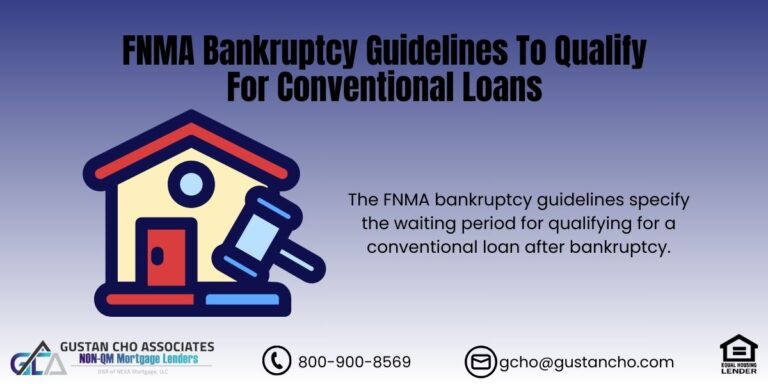Conventional Mortgage Guidelines Versus Other Loan Programs
This ARTICLE On Conventional Mortgage Guidelines Versus Other Loan Programs Was PUBLISHED On February 28th, 2020
Conventional Mortgage Guidelines Versus Other Loan Programs and tips for qualifying and getting a mortgage approval:
- Many blog posts written by Gustan Cho Associates educate our readers on FHA and VA mortgages
- In this blog, we are going to focus on Conventional mortgage lending guidelines
- A conventional mortgage makes up the majority of mortgages currently being serviced in the United States
- Estimates show about ⅔ of mortgage loans is conventional mortgages
- They are the most popular mortgage product but also slightly harder to qualify for
- In this blog, we will detail how to prepare for a conventional mortgage, some basic conventional mortgage guidelines, and how to apply for a conventional mortgage with Gustan Cho Associates
In this article, we will discuss and cover Conventional Mortgage Guidelines Versus Other Loan Programs.
Conventional Mortgage Guidelines Versus Government Loans
A conventional mortgage is defined as a mortgage loan NOT insured or guaranteed by the Federal Government. Conventional mortgages can be offered through private lenders (such as NON-QM loans):
- The majority of conventional mortgages are overseen by two government-sponsored entities (GSE), Freddie Mac and Fannie Mae
- Most Americans have heard those names but have no idea what they truly mean
Let the mortgage experts explain below.
Fannie Mae And Freddie Mac Conventional Mortgage Guidelines
- Stands for the Federal National Mortgage Association
Stands for the Federal Home Loan Mortgage Corporation
- Fannie Mae and Freddie Mac are government-sponsored entities, not branches of government
- They are in charge of creating conventional mortgage guidelines
- They have come up with a set of regulations to help the real estate economy remain stable
- After the real estate crash of 2008, they really tightened up their qualifications
- They have come up with standards for calculating income, analyzing credit reports, down payment requirements, debt to income requirements, and more mortgage guideline requirements
These agencies have come a long way since the crash and many experts believe they will soon be private companies again.
Tips For Qualifying For A Conventional Mortgage
Some tips for qualifying for a conventional mortgage:
On-time payments to ALL creditors reporting to your credit report are very important for conventional lending. There are times where you can get away with a late payment on an FHA mortgage, however, conventional mortgage guidelines are more strict. Clean payment history for the past 12 months is very important. Any missed late payment in the past 12 months may hinder your qualifications. Assuming you have a clean 12 months of payments on your credit report, below are some basic qualifications.
- The minimum credit score of 620
- Minimum down payment of 5%
- Unless you are a first-time homebuyer, where you can put down as little as 3%
- Debt to income ratio up to 50%, ideally you want your debt to income ratio to be below 43%
- Allow for non-occupying co-borrowers.
Cash-out refinance options up to 80% loan to value, currently the same as FHA.
The Truth About Qualifying For A Conventional Mortgage

The common myth of conventional mortgage lending
- Many Americans think you need a 20% down payment in order to qualify for a conventional mortgage
- That cannot be further from the truth, you need as little as 3% as a first-time home buyer and 5% as a repeat homebuyer
- Of course, putting down 20% is ideal because you will not have to pay additional PRIVATE MORTGAGE INSURANCE
- Private mortgage insurance is an additional cost that protects the lender in case of mortgage default
- Your mortgage insurance premium is risk-based, just like your interest rate
- Meeting your premium will be based on credit score, debt to income ratio, and down payment amount
Your mortgage insurance premium will be significantly cheaper if you put down a larger down payment (such as 15%) and have a higher credit score compared to a minimum down payment (3% of 5%), lower credit score borrower.
Conventional Mortgage Insurance Premium Versus FHA Loans
The good news with mortgage insurance and conventional mortgages is the premium will eventually go away.
- Unlike FHA, once your amortization table reaches 78% loan to value, the mortgage insurance is automatically canceled
- You may call your lender when that number reaches 80% and they will remove your mortgage insurance
- What are some other ways to get rid of mortgage insurance?
- If your home has increased in value and you now owe less than 80% of the current value of your home, you can complete an appraisal and have your mortgage insurance removed
This is very common in up and coming areas such as Nashville, Tennessee or Austin, Texas.
Meeting The LTV Requirements To Eliminate PMI
If your home has not increased in value, you can make extra payments to pay down your principal balance below 80% of the value of your property.
- We have also seen borrowers use a second mortgage in lieu of private mortgage insurance
- One of the most common terms for this practice is called 80/10/10 (eighty/ten/ten)
- Meaning you take out a first mortgage for 80%, a second mortgage for 10%, and a 10% down payment at closing
- Yes, you will have a second mortgage, but you will not have private mortgage insurance
- Meaning you can pay the second mortgage off as fast as you possibly can to lower your overall interest payments
The information above relates to MONTHLY mortgage insurance, there is another option.
Private Mortgage Insurance Options
You may pay your mortgage insurance premium upfront in full to not have an added monthly expense.
- There are also ways to pay your mortgage insurance premium with a higher interest rate
- Depending on your credit score, this may be an option for you
- Mortgage insurance can be incredibly confusing, please call Mike Gracz on (800) 900-8569 for more clarification
Mike may also be reached via email at gcho@gustancho.com.
Types Of Mortgage Loan Programs At Gustan Cho Associates
Specialty loan programs, homestyle, Home Pat,
Applying for a conventional mortgage with the Gustan Cho Associates at loans Cabin is very simple. We have made this process as easy as possible for our clients. The first step is to call Mike Gracz on (800) 900-8569. You will have a brief one on one mortgage consultation to make sure you fit into the conventional mortgage guidelines. From there a loan officer who is licensed in your state will send you an application link. You will complete that link which will give your loan officer permission to pull your credit report. Assuming everything on your credit report checks out, the following documentation will be sent in.
- Last 60 Days Bank Statements – to source down payment
- Last 30 Days Pay Stubs
- Last Two Years W2’s
- Last Two Years Tax Returns – not always required
- Driver’s License or Government Issued Photo ID
Your loan officer will then reverse engineer the numbers and see exactly what you qualify for. Based on the amount of down payment you have available and your gross income, your loan officer will issue a preapproval letter accordingly.
Qualifying For A Conforming Loan With A Lender With No Overlays
Once you are preapproved, your realtor will be excited to know you are using a conventional mortgage.
- This is because not all properties can be financed through an FHA or VA loan, such as certain condominium complexes
- A conventional mortgage can be used to purchase these homes
- The appraisal process is also less strict with conventional mortgages compared to FHA and VA appraisals
- This will make the listing agent happy and more likely to accept your offer
Minor things such as minor peeling and chipping paint will be a hard stop for FHA and VA appraisals where a conventional appraisal usually won’t create an issue.
As mentioned above, conventional mortgages make up about ⅔ of the mortgage market. We are mortgage professionals who can assist you with all your conventional mortgage needs. Our team is available 7 days a week for any mortgage-related questions. Our staff is up to date on all of the guideline changes. To stay in the loop, please subscribe to our YouTube CHANNEL.







